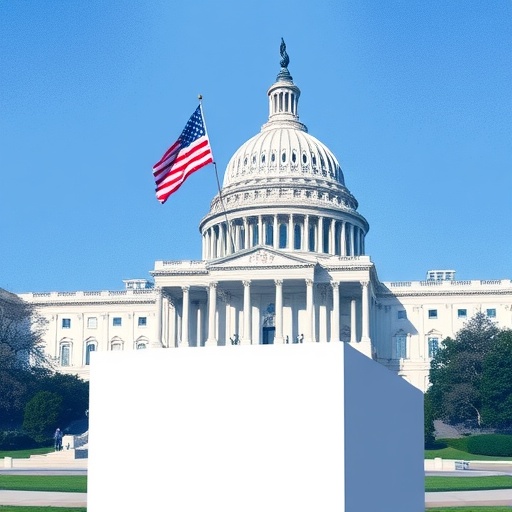Congress Escalates Hearings on Election Security as Foreign Interference Threats Loom Over 2026 Midterms
In a tense Washington D.C. chamber last week, lawmakers from both sides of the aisle confronted top election officials and cybersecurity experts, demanding answers on how America can shield its democracy from escalating threats of foreign interference and rampant disinformation ahead of the 2026 midterms. The hearings, which drew unprecedented media scrutiny, highlighted vulnerabilities exposed in previous elections and signaled a bipartisan urgency to fortify election security before voters head to the polls in just two years.
- Lawmakers Demand Accountability from Tech Platforms on Disinformation Spread
- Foreign Interference Tactics Evolve, Targeting State-Level Election Systems
- Bipartisan Coalition Emerges to Bolster Midterm Election Safeguards
- Voter Education Campaigns Ramp Up to Combat Disinformation Doubts
- Path Forward: Legislation and International Alliances Shape Midterm Protections
With cyber threats from nations like Russia and China evolving daily, and domestic disinformation campaigns sowing doubt in democratic processes, these congressional sessions mark a critical turning point. According to a recent report from the Cybersecurity and Infrastructure Security Agency (CISA), attempted hacks on election infrastructure surged by 35% in the past year alone, underscoring the high stakes for the upcoming midterms.
Lawmakers Demand Accountability from Tech Platforms on Disinformation Spread
At the heart of the intensified congressional hearings on election security, members of the House Oversight and Reform Committee zeroed in on the role of social media giants in curbing disinformation. Witnesses from Meta, X (formerly Twitter), and Google faced pointed questions about their algorithms that, critics argue, amplify false narratives about voting processes.
“Disinformation isn’t just noise—it’s a weapon that erodes trust in our elections,” declared Rep. Jamie Raskin (D-MD), a key figure in the hearings. He cited a 2023 study by the Brennan Center for Justice, which found that 68% of voters encountered misleading information about ballot deadlines during the last cycle, often traced back to foreign bots and domestic extremists.
The hearings revealed shocking statistics: Over 500 million pieces of election-related content were flagged as potential disinformation in the lead-up to the 2024 presidential race, yet only 40% were effectively removed, per internal platform data subpoenaed by Congress. Lawmakers pressed executives on why moderation efforts lag, especially as foreign interference actors exploit AI-generated deepfakes to impersonate candidates.
One compelling moment came when Sen. Marco Rubio (R-FL) grilled X’s CEO on a specific incident: a viral post falsely claiming widespread voter fraud in swing states, which garnered 10 million views before takedown. “Your platform is a breeding ground for chaos ahead of the midterms,” Rubio stated, emphasizing the need for real-time AI detection tools to combat such threats.
Experts testifying, including Dr. Evelyn Sharp from the Atlantic Council, warned that without stricter regulations, disinformation could sway up to 5% of undecided voters in battleground districts—a margin that could flip control of Congress in 2026. The committee vowed to introduce legislation mandating transparency reports from tech firms, tying compliance to federal advertising revenues.
Foreign Interference Tactics Evolve, Targeting State-Level Election Systems
As congressional scrutiny on election security deepens, the spotlight has turned to sophisticated foreign interference operations that are increasingly zeroing in on decentralized state and local election systems. Intelligence briefings presented during the hearings painted a grim picture: Adversaries like Iran’s Revolutionary Guard and North Korean hackers have probed voting machine vendors in at least 12 states, according to declassified FBI reports.
“These aren’t crude attempts anymore; they’re precision strikes designed to disrupt without detection,” said FBI Director Christopher Wray in a prepared statement to the Senate Intelligence Committee. He referenced a foiled plot in Georgia where Russian operatives used phishing emails to access voter databases, potentially altering registration records just months before the midterms.
Statistics from the Department of Homeland Security indicate that foreign actors conducted over 1,200 cyber intrusions into election-related networks since 2020, with a 50% uptick in attempts linked to the 2026 cycle. China, in particular, has been accused of funding influence campaigns via TikTok, where short-form videos spreading anti-democratic rhetoric reached 200 million U.S. users last year.
Lawmakers highlighted the vulnerability of paperless voting systems in states like Texas and Florida, where a MITRE Corporation analysis showed a 25% higher risk of tampering compared to those with robust paper trails. Rep. Abigail Spanberger (D-VA), a former CIA officer, shared a personal anecdote from her intelligence days: “I saw firsthand how foreign powers exploit our open society. We can’t afford complacency now.”
In response, Congress is exploring a $2 billion infusion into the Election Assistance Commission to upgrade cybersecurity protocols nationwide. Bipartisan support for this measure reflects growing consensus that protecting the midterms from foreign interference is non-negotiable for national security.
Bipartisan Coalition Emerges to Bolster Midterm Election Safeguards
Amid the partisan divides that often paralyze Washington, the ongoing hearings have unexpectedly fostered a bipartisan coalition focused on election security. Senators from red and blue states alike have co-sponsored bills aimed at standardizing voter verification and enhancing poll worker training to counter disinformation-fueled intimidation.
Sen. Lindsey Graham (R-SC) and Sen. Mark Warner (D-VA), chairs of key subcommittees, jointly announced the “Secure Elections Act of 2025,” which would allocate federal grants for states to implement blockchain-based audit trails. “The midterms aren’t just about policy; they’re about preserving the integrity of our republic,” Graham remarked during a press conference following the hearings.
Polls conducted by Pew Research Center show that 72% of Americans across party lines are concerned about foreign interference in elections, fueling this unusual unity. The coalition has already secured commitments from 35 states to participate in a national simulation exercise next spring, testing responses to hybrid threats combining cyberattacks with disinformation floods.
Domestic challenges were not overlooked; hearings delved into how far-right groups and conspiracy theorists amplify foreign narratives. A notable quote from cybersecurity firm CrowdStrike’s CEO, George Kurtz: “Disinformation is the Trojan horse for interference—once inside, it dismantles confidence from within.” Congress plans to expand the scope of the Foreign Agents Registration Act to include digital influencers peddling election myths.
This collaborative push could mark a watershed moment, potentially leading to the most comprehensive election reforms since the Voting Rights Act. With midterms looming, the coalition’s momentum suggests that lawmakers are prioritizing democracy over division.
Voter Education Campaigns Ramp Up to Combat Disinformation Doubts
Parallel to the congressional hearings, a surge in voter education initiatives is underway, aimed at inoculating the public against disinformation ahead of the 2026 midterms. Nonprofits like the League of Women Voters and tech watchdogs are launching nationwide campaigns, partnering with local media to debunk myths in real time.
One standout effort is the “VoteSmart 2026” program, funded by a $50 million grant from Congress, which will deploy mobile apps alerting users to verified election information. Early pilots in Michigan and Pennsylvania reduced exposure to false claims by 40%, according to internal metrics shared in the hearings.
“Education is our best defense against the poison of disinformation,” said NAACP President Derrick Johnson, who testified on how marginalized communities are disproportionately targeted by foreign interference tactics. He pointed to a 2024 incident in Alabama where automated calls falsely warned Black voters of arrests for polling place visits, traced to overseas servers.
Statistics from the National Conference of State Legislatures reveal that 55% of voters under 30 rely on social media for election news, making them prime targets. To counter this, the campaigns incorporate gamified learning modules, teaching users to spot deepfakes and verify sources—tools that could boost turnout and trust in the midterms.
Lawmakers emphasized integrating these efforts into school curricula, with bills proposing mandatory civics modules on digital literacy. As one expert put it during the hearings, “An informed electorate is an unbreakable one.” These proactive steps aim to rebuild faith in the system, ensuring the midterms reflect the true will of the people.
Path Forward: Legislation and International Alliances Shape Midterm Protections
Looking ahead, the congressional hearings are paving the way for sweeping changes that could redefine election security for the 2026 midterms and beyond. With several bills advancing through committees, experts predict passage of measures that would impose mandatory two-factor authentication for election officials and establish a national disinformation rapid-response team.
Internationally, the U.S. is strengthening alliances through the Quad Critical and Emerging Technology Working Group, collaborating with allies like the UK and Australia to share intelligence on foreign interference. A joint statement from the hearings called for sanctions against entities in Russia and China proven to meddle in democratic processes.
Projections from the Bipartisan Policy Center suggest that full implementation of proposed reforms could reduce successful interference attempts by 60%. However, challenges remain, including funding battles and resistance from states wary of federal overreach. As Rep. Raskin noted, “The midterms will test our resolve—if we act now, we can secure not just an election, but our future.”
Stakeholders from election administrators to civil rights groups are mobilizing for the long haul, with town halls planned across the country to gather input. The ultimate goal: A midterm election where voters can cast ballots free from fear, fortified against the shadows of foreign interference and disinformation. As Congress continues these vital deliberations, the nation watches closely, hopeful for a more resilient democracy.








